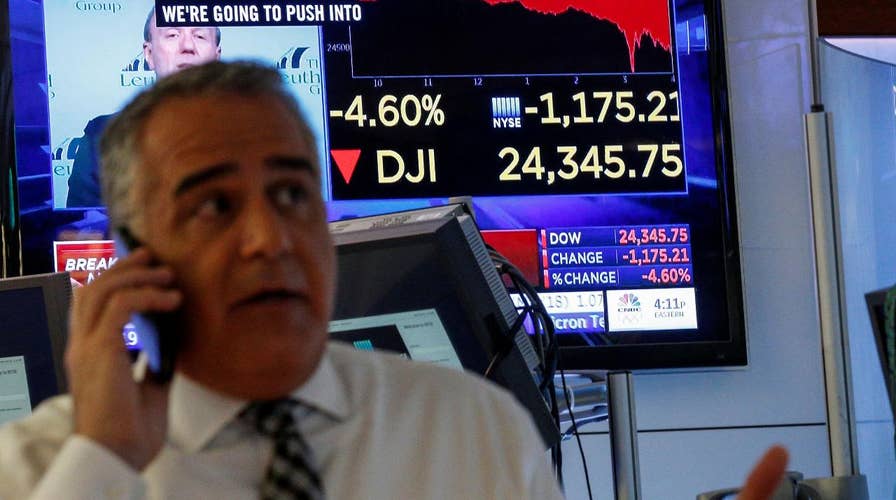Stocks make history, but not the good kind
The Dow suffers its biggest one-day point drop ever, down more than 1,100 points.
All eyes are on Wall Street Tuesday, as the stock market prepares to follow up on the biggest plunge in its history.
The Dow dropped a stunning 1,175 points on Monday, building on losses from a week ago as investors and Main Street received mixed signals about the economy. The market had made huge gains in the first year of the Trump administration and was up more than 40 percent at one point. But the sea of red washed away all of 2018's gains.
"This is a reality check that the market was priced to a perfection that didn't exist," Diane Swonk, chief economist at Grant Thornton, told the Chicago Tribune.
“Playtime is officially over, kids."
Overnight, foreign markets continued to plummet and U.S. futures whipsawed between major losses and modest gains. Regardless of how things shake out Tuesday, the volatility reminded investors stocks can't remain on an upward trajectory forever, analysts noted.
“Playtime is officially over, kids,” analysts at Rabobank said. “Rising volatility painfully reminds some investors that one-way bets don’t exist.”
Economists put a positive spin on Friday's nosedive of nearly 5 percent, noting it may actually be evidence of the strengthening economy. Rising wages and the prospect of the Federal Reserve raising interest rates are all signs of a healthy economy -- but also tend to hurt stock process.
On Monday, when the market closed down 1,175.21 points, to 24,345.75 – the largest one-day percentage drop since 2011 – traders were growing increasingly worried as the day plowed on, the Wall Street Journal reported.
“First thing I asked myself was: ‘Is this a flash crash, did someone fat finger this?’” Eoin Murray, head of investment at Hermes Investment Management, told the paper.
The Dow is now down 1.5 percent for 2018 so far, off 8.5 percent from its high, which occurred on Jan. 26.
The fall was also blamed on program trading, where stocks are automatically sold off due to certain triggers, creating a momentum that only the closing bell can stop.
"Price action is clearly driven by technical factors, tied to a brutal awakening of stock volatility," said Alessandro Balsotti, head of asset management at JCI Capital Ltd.
"Ultimately I think the robust economic phase will be able to withstand the bloodshed on volatility," he added.
Even if it ultimately signals a strengthening economy, the stock market drop has political implications. President Trump has relentlessly touted stock market advances.


